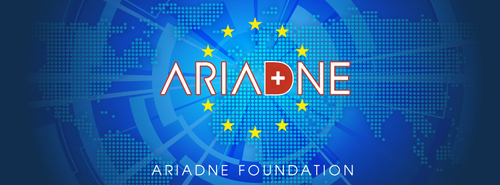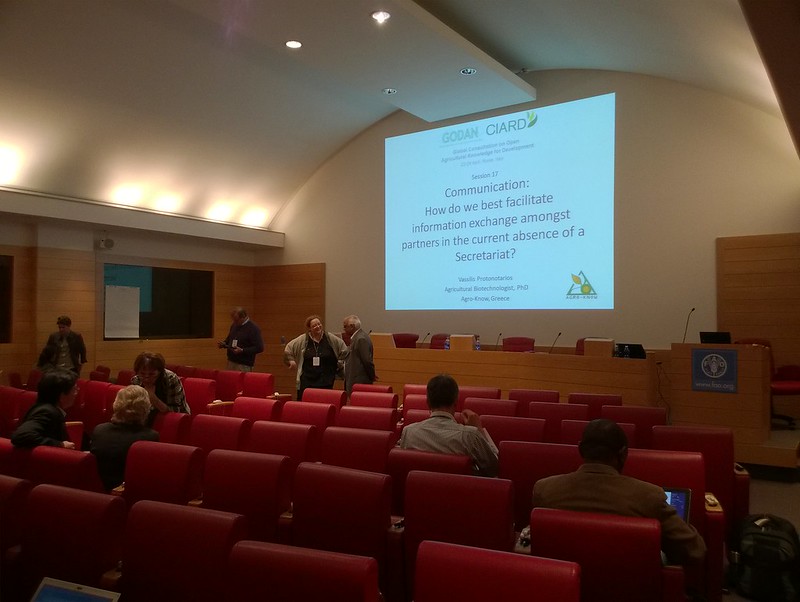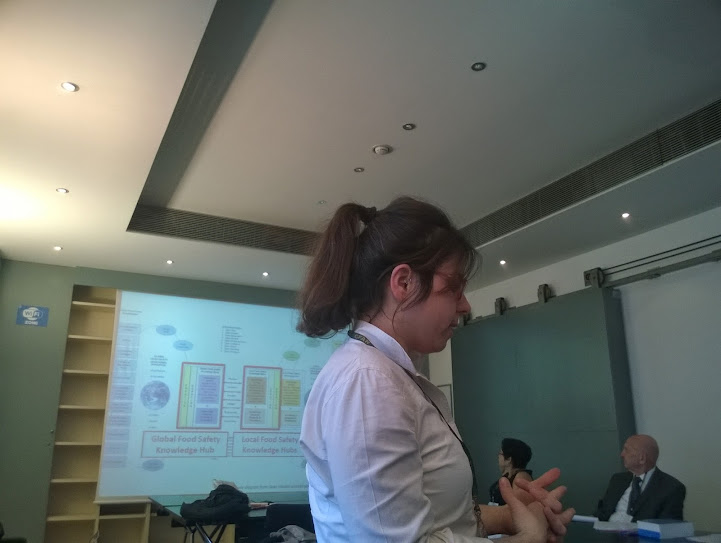So I am back in the office. For good; or for at least one month (the next trip is planned for early June). That sounds like a relief after spending almost three weeks in a row out of office, participating in various events namely:
- The CIARD/GODAN 1st Consulatation Meeting (22-24/4/2014, Rome, Italy);
- The Organic.Lingua 3rd (and final) review meeting (28-30/5/2014, Luxembourg);
- The ARIADNE Foundation General Assembly (5/5/2014, Athens, Greece);
- The EdReNe 11th Conference (6/5/2014, Athens, Greece);
- The LRE Subcommittee meeting (7/5/2014, Athens, Greece).
My contribution in each one of these events significantly varied; in one of them I was invited to participate as an external observer, in another one I had a small presentation and contribution to discussions, in another I was responsible (among others) to formulate the agenda of the Conference and also make presentations and for the first two ones in the list I had to allocate a significant amount of time and effort for preparing my slides, the sessions I was responsible for and for making the presentations (among other types of contributions).
While I was out of office, new tasks were added to the list, old ones needed to be finalized and shared with colleagues and on top of that, urgent tasks came out of nowhere and required special attention in a short notice. Despite the fact that I tried to plan my activities carefully and take care of the ones that could be handled during (or even before) these fully packed days, it was not possible to keep my schedule under control. In addition, I found it rather hard to focus on the office routine during the first hours, so I decided to spend some time on preparing myself and doing less demanding stuff.
 |
| Some days are more demanding than the others... |
This is when I found out about Timeful; it is an app which promises to help you keep things under control, even under hard days, acting as an "intelligent time manager". This sounds like a thing that I could surely make good use of, so I decided to take the online quiz and see where I stand. After I replied to the simple 10 questions of the quiz, I got the following result, which is really close to the impression I also had.
I was also provided with some useful recommendations on improving my situation:
Improving balance:
- As you plan your day, make sure to give yourself a bit of buffer time. Unexpected things are the norm, not the exception, and stress is often caused by not allowing time for the unexpected. In fact this is a thing that I already apply to my schedule, but sometimes even buffering is not enough...
- Start each day by naming one MGD ("Must Get Done") for that day, and put it on your calendar. Then get to it first thing in the morning. I am also doing this more or less; prioritization of tasks is a key to accomplishing them on time. However, I admit that I prefer to send my emails early in the morning, so I will (or at least I hope so) get my responses before the end of the day; in the meantime, I can allocate time in urgent tasks.
- In the battle for your time, things that get scheduled will win over things that aren’t scheduled. Book plans with your friends and family right into your calendar, then protect them as you would a business meeting. This is something that I will need to work on; it seems that putting focus only on business tasks and neglecting the personal/family ones acts as a boomerang and in the end it effects the business planning.
- Make sure to schedule "me time." Eating well, sleeping, and working out make us human and happy. By the way, even if you don't care about being happy or human, it actually makes us more productive at work! This is also a point to take into consideration; it's easy to neglect everything and focus on work...
Improve your productivity
- The hardest part of a task is usually starting it. You can avoid procrastinating by making the start more enjoyable. Pour yourself a cup of coffee or cocoa and sip it during the first five minutes of the task. By the time the coffee is done, you’ll be well on your way.
- Checking off little to-dos and responding to emails can give us the short-term illusion of being productive, but it’s the important, tough, and time-consuming stuff that makes us feel accomplished in the long run.
- Break your important projects into subtasks and give yourself a pat on the back each time you finish one. Then check it off your list.
- Knowledge is often best disseminated through informal interactions. When you need to learn something, don’t call a meeting, but ask someone to get a quick cup of coffee.
- When you have important tasks, mark off blocks of your calendar as “busy,” so your time can’t be hijacked by co-workers. If “busy” doesn’t stop them, use important-sounding fake meetings.
It all has to do with time management but not only, and the Timeful app got it right; time is limited and we need to see how we can get the best out of it. Some things will stay in the agenda, while others will have to be delegated or even declined. In any case, I am really anxious to start using the Timeful app as soon as it becomes available, hoping that it will (at least partially) help.
















